There’s a reason that spiders are essential to any Halloween party decor; they’re scary. That goes for movies, too. Whether in classic sci-fi films like Earth vs. the Spider or modern monster movies such as Big-Assed Spider, eight legged creepy crawlies have snuck their way into movies for as long as there have been movies. Hollywood heroes have done battle with single mutant spiders, as in Tarantula, and whole groups of them, like in Arachnophobia. Sometimes, spiders can play a small role in a film, only to end up having their scene be the most memorable in the picture, as is the case with The Fly. And, sometimes, spiders just have to show up as eerie set dressing and let the humans do the scary stuff, like they do in 1968’s Spider Baby.
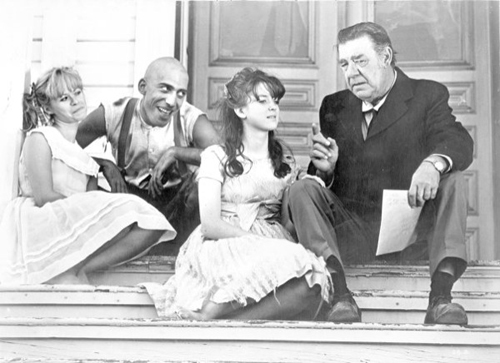
Spider Baby begins with a narrator reading from the Dictionary of Rare & Peculiar Diseases about an ailment called Merrye Syndrome in which the subject mentally regresses in age until, finally, they end up in a pre-natal state resulting in “savagery and cannibalism.” The narrator then tells the story of the family for which the disease is named, the Merrye family. The family consists of three children: the bossy Elizabeth (Old Yeller’s Beverly Washburn), the playful Ralph (Sid Haig from The Devil’s Rejects and House of 1000 Corpses), and the unstable Virginia (Jill Banner from Weekend of Fear). The Merryes are watched over by their chauffer and butler, a loyal servant named Bruno (The Wolf Man himself, Lon Chaney Jr.). The four live in a big, isolated house and generally keep to themselves, until a pair of distant relatives, Uncle Peter (Ordinary People’s Quinn Redeker) and Aunt Emily (Carol Ohmart from House on Haunted Hill), decide that they want to take custody of the children – along with the estate. Peter and Emily show up at the house, along with their lawyer, Mr. Schlocker (Dementia 13’s Karl Schanzer), and his assistant, Ann (Mary Mitchel, also from Dementia 13), but they have no idea about the mental state of the children. Liz, Ralphie, and Virginia have no desire to leave Bruno and go with the family, and they are willing to get downright murderous in order to preserve their lifestyle.
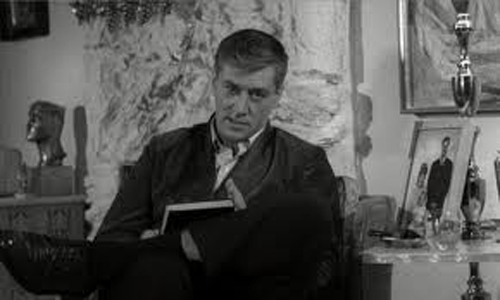
Although Spider Baby has more of an air of a black comedy than a horror film, it is definitely as morbid of a movie as one is apt to find. Writer/director Jack Hill (Foxy Brown, Switchblade Sisters) cut his teeth apprenticing Roger Corman and would go on to make classic blaxploitation films. Spider Baby is the perfect marriage of low-budget schlock and grind house grime. Walking the line between horror, comedy, and sci-fi, the film is quite schizophrenic, even having had an identity crisis as far as its title; during its production lifespan, it was known as The Liver Eaters, Attack of the Liver Eaters, and Cannibal Orgy, as well as being referred to by its subtitle, The Maddest Story Ever Told. The movie gets its name from the youngest Merrye girl, Virginia, the baby who has a fascination with spiders. The girl enjoys trapping people in her “web” by tying them up and “stinging” them with her knives. Virginia also keeps a pair of big, hairy spiders as pets, crawling around on her stomach with them while she “plays spider” amongst the cobwebs. While the spiders themselves are not the threat in Spider Baby, their constant presence and Virginia’s obsession with them is enough provide chills to even the most stoic of viewers.
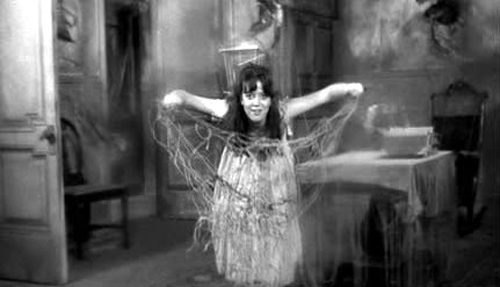
The rest of the Merrye family is just as odd as Virginia. Bruno is the obvious patriarch of the family, but he is not a father figure; he’s just a caretaker. The dysfunctional family has a feel that is not unlike that of The Addams Family, a tongue-in-cheek vibe that keeps the viewer on the verge of laughter, even when the situation does not call for it. And laughter is not called for often, because the Merryes are not lighthearted and jovial; they are deranged and disturbed when provoked, comparable to the Firefly Family in House of 1000 Corpses and The Devil’s Rejects. The Merrye Family is the perfect combination of Munster and Manson, and that fact adds to the blackness of the comedy in Spider Baby.
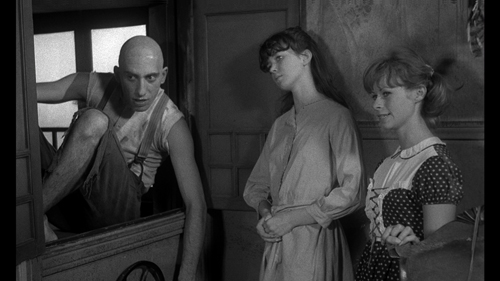
There are not one, but two legendary horror actors working together in Spider Baby. The film is one of Lon Chaney Jr.’s final roles after a lifetime of Universal Horror films (as well as several mainstream classics like High Noon and The Defiant Ones). On the other hand, Spider Baby is one of the first screen appearances of Sid Haig, the actor who would become a b-movie icon working for Roger Corman and, subsequently, would show up in everything from THX1138 to Jackie Brown (including several of Jack Hill’s blaxploitation films). The presence of both men makes Spider Baby more than just a low-budget horror film; it’s a piece of cinematic history.
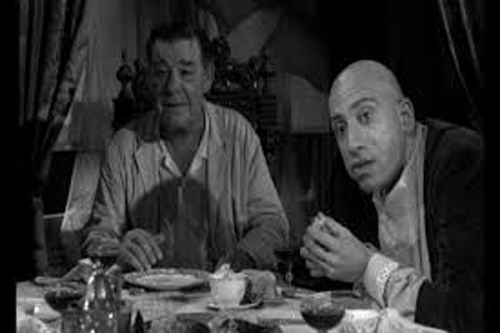
There are sections of Spider Baby that are self-referential, seeming to wink at the viewer in both subtle and not-so-subtle ways. During one scene, Peter and Ann are discussing horror movies and they start to talk about the Universal pictures with Lon Chaney Jr., one of the most important figures from studio’s history, mere feet away from them. When the conversation finally gets around to mentioning The Wolf Man, Bruno just utters that “there’s going to be a full moon tonight.” As if that weren’t enough, wolf howling can be heard later on during the night, once again bringing Chaney’s cinematic legacy to mind. Furthermore, the Merrye House, perched upon a hilltop, bears a striking resemblance to the Psycho house. Even the poster seems to mimic another film, with its black, white, and red scheme and conspicuous tagline – “whatever happened to Spider Baby” – looking suspiciously like the promo materials for Whatever Happened to Baby Jane?. Spider Baby doesn’t draw influence from other films so much as it references them directly, letting them in on the joke as well.
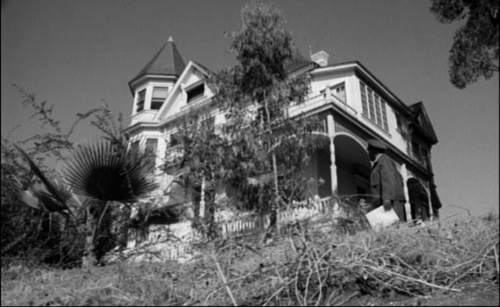
The music for Spider Baby was done by yet another graduate of the Corman film school, Ronald Stein (who did Corman movies such as It Conquered the World and Attack of the Crab Monsters as well as low budget classics like The She-Creature and Attack of the 50 Foot Woman). The audience knows what it’s in for from the very start; a silly title theme containing whimsical lyrics sung by Lon Chaney Jr. plays over the opening title cards which contain cartoon pictures of the cast. At first, the score seems out of place for a horror film, heavy on the wind and reed instruments and sounding a lot like Prokofiev’s Peter and the Wolf. Soon enough, however, it becomes clear that the children are at the center of the film, and the playful choice of instrumentation starts to make sense. Although the music does turn spooky and ominous in places, it never takes itself too seriously; it even quotes Itsy Bitsy Spider during the climax. Stein’s score for Spider Baby is just like the film; schizophrenic, shifting from horror to comedy at the drop of a hat.
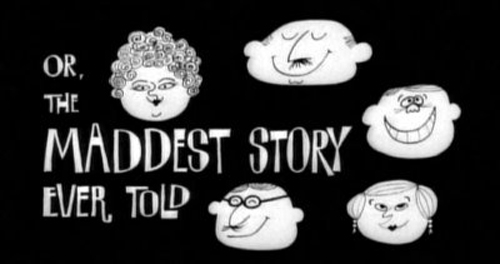
When all is said and done, Spider Baby is a very odd film, but very enjoyable. It also begs the question; what is scarier, a spider or a person who is pretending to be one?
